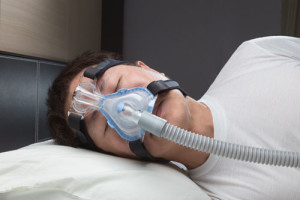 Sleep apnea often goes undiagnosed as snoring is often overlooked as a possible symptom of a medical condition and thought of more of a nuisance. Snoring, however, is not the only sign of sleep apnea and in fact those with sleep apnea may not snore at all.
Sleep apnea often goes undiagnosed as snoring is often overlooked as a possible symptom of a medical condition and thought of more of a nuisance. Snoring, however, is not the only sign of sleep apnea and in fact those with sleep apnea may not snore at all.
If you are chronically tired during the day that is also another giveaway that your quality of sleep isn’t what it should be.
If you also experience the following you may want to go visit a sleep specialist and have them check you for potential sleep apnea.
- Loud or frequent snoring
- Stops in breathing while sleeping
- Choking sounds
- Sleepiness during the day
- Fatigue
- Waking up feeling tired
- Insomnia
- Experiencing headaches upon waking
- Using the restroom frequently during the night
- Difficulty concentrating
- Memory loss
- Loss of sex drive
- Irritability
Are you at risk for sleep apnea?
The major risk factor for sleep apnea is carrying excess body weight. If your body mass index (BMI) exceeds 25 you are at higher risk.
Other risk factors can include:
- Middle age
- Male
- High Blood Pressure
- Large Neck Size
- Family History of Sleep Apnea
- Smoking
- Excessive alcohol consumption
Take this self-assessment to see if you may be at risk http://www.sleepeducation.org/essentials-in-sleep/sleep-apnea/self-tests
Diagnosing sleep apnea may include:
- Keeping a sleep journal
- In lab overnight studies – sleep centers resemble a hotel room. You will be hooked up to monitors which record brain activity, breathing, movement, and heartbeat.
- Home sleep apnea tests – allow you to sleep test in the comfort of your own home. The testing equipment is less complicated and easy to hook up yourself with just a little instruction.
If you are diagnosed with sleep apnea a comprehensive custom treatment plan will be tailored to you by your physician and may also include combined efforts of other providers including your dentist, psychologist, physician assistant, nurses and technologist.
Possible solutions:
- CPAP (Continuous Positive Airway Pressure) machine – to keep your airway open at night. CPAP is the front line treatment for this disorder.
- Oral Appliance Therapy – resembles a mouth guard. It will slide your jaw forward allowing proper air flow.
- Weight Loss – can often reduce or eliminate symptoms.
- Lifestyle Changes – Quitting smoking and or drinking alcohol can positively alter the quality of sleep.
- Positional Therapy – Consists of adjusting the position in which you sleep.
- Surgery – There are multiple types of surgery possible with sleep apnea. It is not as effective as the CPAP machine or an oral appliance and generally is the last resort.
If you think you may have sleep apnea, find a board certified physician by visiting www.ipalc.org/find/
Share on Facebook



 Southwest Florida Medicine.com is dedicated to bringing you the very best health information available today!
Subscribe or check back regularly!
Southwest Florida Medicine.com is dedicated to bringing you the very best health information available today!
Subscribe or check back regularly!